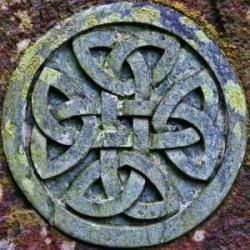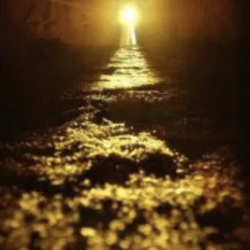 At the Spiritual Naturalist Society, we write and talk about contemplative spiritual practices of inner transformation. One cannot do that for very long before the topic of psychedelics in spiritual practice comes up. It would be more helpful and complete to think about this more generally, as just part of a larger topic regarding altered states of consciousness.
At the Spiritual Naturalist Society, we write and talk about contemplative spiritual practices of inner transformation. One cannot do that for very long before the topic of psychedelics in spiritual practice comes up. It would be more helpful and complete to think about this more generally, as just part of a larger topic regarding altered states of consciousness.
Altered states of consciousness could include psychedelic experiences, but they also include altered states one could achieve in, for example, a chanting ceremony, sweat lodge, drumming ritual, ecstatic dance, fasting, intense meditation, or any number of other practices and rituals. Even watching a film puts one in some kind of state of consciousness that could be considered altered. A flow state while engrossed in an activity might even count.
The point of altered states of consciousness are to give us a new perspective on the things we may entertain during them, whether we are fully aware of the thoughts at the time or not. Much like the way our minds see things differently when we have “slept on it”, there is a kind of reorganization of information, along with noticing things that went unnoticed. All of this can result in epiphanies and create leaps in our spiritual progress.
But many of the ways of reaching these altered states involve physically trying or at least unusual circumstances. This is why, whatever the method, you should be very careful in selecting what is right for you, learning all you can, and have others to help guide you.
In this article, however, I shall focus more specifically on psychedelic substances and their possible role and effects in spiritual practice – specifically within a Spiritual Naturalist perspective. This article isn’t advocating their use or taking a position, but merely educating. Psychedelics are not necessarily useful for all individuals in the way described here, as the many other ways to reach altered states may be more advisable; everyone is unique. These substances are also still illegal in many places so you should be aware of the laws in your area and act responsibly.
Substances that create an altered state for religious or spiritual purposes are called entheogens. These have long been part of many traditions and cultures, going back to ancient times. Those of us who grew up in the U.S. during the war on drugs have been educated to lump all drugs into one category (“Just say no”). Many therefore have a difficulty separating one ‘illegal drug’ from another and tend to look at them all as if they were crack cocaine or heroin.
But these drugs are very different in terms of their addictiveness and the physical harm they cause the user. Psychedelics have not been found to have these kinds of effects or addictive properties, withdraw symptoms, or physical danger, even with overdose[1]. Though many tests are still needed, it would seem even alcohol, tobacco, and sugar are more damaging and addictive than psychedelic drugs. However, this doesn’t rule out lifestyle effects that may often surround these drugs, or individual mental health issues that may add complications and hazards for some.
As reported in Nature[2], psychedelics have increasingly become the subject of many clinical trials. These trials have been looking at the efficacy of psychedelics such as psilocybin (magic mushrooms), MDMA (ecstasy), and LSD (acid) for treating depression, drug dependency, and more.
But more to my purposes here, what role could such substances play in a naturalistic spiritual practice? Again, psychedelics are most definitely not for everyone – and this may change at various points in one’s life. There are several factors which may determine whether one is ‘ready’ for such experiences. If you are a person who has trouble ‘going with the flow’ or ‘letting go’ then such an experience may not be for you. But paradoxically, these are also some of the very issues that psychedelics can help one deal with. So, whether that is a path for you at this time depends on your thoughts and feelings about it, and perhaps some external help in making that decision.
Further, not everyone will have the same experience. A very large number of people who take these substances do so as a component of partying. For them, it is merely an entertainment, and their experience can be enjoyable (provided they don’t have a ‘bad trip’). But there would be many spiritual aspects to the experience which go unnoticed or simply do not arise – an easily forgettable thrill at best. This kind of use, obviously, is of very little value to a spiritual practice[3]. What may be worse, many who engage in these kinds of uses may be doing so as a form of escapism – possibly escape from something that needs to be confronted more productively. A healthy spiritual practice is never about distracting from, obstructing, looking the other way, or running away – but rather, about becoming more mindful and aware, and confronting what needs to be confronted constructively.
Another consideration: mindset matters. What kind of intention and mindset do we have when taking the entheogen? The importance of this cannot be understated. This includes preparation, the kind of environment we provide during the experience, and so on. If we purposely focus on mundane concerns, distractions, petty thoughts, annoyances, or allow ourselves to dwell on unhelpful things, we will not be able to fully be engrossed in the experience and will miss much of it. Approaching the event with a sense of the sacred is essential.
Another important factor is being philosophically prepared. There are certain concepts and framings that are most conducive to interpreting your experience in a way that creates spiritual epiphany. That kind of preparation is not achieved by reading about studies on psychedelics or brain scans, etc. Rather, it is through reading contemplative philosophy such as that found in Buddhism, Taoism, and many other contemplative traditions. Even learning about some of the wondrous aspects of the natural universe by a communicator who can put them into poetic and beautiful description is helpful. This kind of education gives us a framework and loads our mind with ‘fuel’ we will be able to digest during the experience.
And, as mentioned, the art of letting go is crucial. Most psychedelic experiences last for many hours, and once you get on that roller coaster, there’s no getting off. Also, while it may be several hours, your sense of time will become distorted as well. Many report a sensation that ‘eons’ have passed. So, of course, be sure you don’t have anywhere you’ll need to be for much longer than that. You will likely be very alert and not want to or be able to sleep during the experience, which means that you will need to sleep extensively after the trip. Making sure you have that time arranged safely will be important to giving you the peace of mind you’ll need to let go.
Letting go also means that, during the experience, you should try not to be looking at the time or worrying about how much time has passed, or how much longer it should be. Generally avoid measurements as this will focus your mind too much on analytical thinking, and the experience should involve all of your centers and senses in a network. Instead, try to stay in the present moment. Appreciate what is happening right now and be present. We also do that in mindfulness meditation, but instead of stilling the mind, let it soar and explore.
So, what does all this do?
Trying to explain the experience of a psychedelic trip in words is extremely difficult for those who have experienced them – even comically so. If you have seen the film, 2001: A Space Odyssey, imagine David Bowman going back to earth the following Monday and someone in the office asking him, “How was your weekend?” He might be better off simply saying, “fine” and letting it go at that.
If you have ever been drunk that will be of no help in understanding either. A drunken state is one of being in a haze, dreary, and having one’s senses dulled or obfuscated. In many ways, a trip is the exact opposite. If anything, you are more alert – too much so to be capable of staying focused on any one thing (do not operate heavy machinery).
Depictions of psychedelic experiences in popular culture often focus too much on strange visuals. They show the character seeing all kinds of distorted crazy things, talking to alligators in hats, and so on. Television is a visual medium so they are doing the best they can perhaps. Yes, one does see movement and distortions, particularly looking at complex patterns. And, when closing ones’ eyes, they may more vividly see imagery of intricate machinery or patters which do not seem to have been willfully imagined but fed to us as if in a dream. Experiences like this can vary widely.
But the visual aspect of a psychedelic experience is only the most surface of things to describe. If that were all it was about, one could simply look at the patterns in a kaleidoscope. The essence of the experience at its best is much, much more.
Educator Michael Stevens hosts a YouTube channel called Vsauce which looks closely at a wide variety of fascinating if obscure topics in science, culture, and more. He also hosted a short series called Mind Field, which looked at various aspects of the mind. Season 2, episode 2 was called “The Psychedelic Experience”[4]. Michael traveled to the jungle in Peru to experience Ayahuasca – a psychoactive brew and traditional ceremonial medicine used by the indigenous peoples there.
Scans of Michael’s brain were taken before and after the journey there, by the Head of Psychedelic Research at Imperial College, Dr. Robin Carhart-Harris. Dr. Carhart-Harris also accompanied Michael to take surveys before, during, and after the ceremony, along with some field readings.
Michael said that if he could have the experience again, he would try to let go more. He could feel himself resisting the process and had apprehension about the sensation of loss of ego. Trouble letting go seems to be more common among intellectual, analytical types of people (which Michael seems to be to me). But there were some other things Michael said before the experience, which I think may have curtailed a lot of the experience’s potential elements.
Michael didn’t seem to share any of the indigenous people’s supernatural beliefs about any of the ceremony, or didn’t mention any – which is fine (and consistent with a Spiritual Naturalist’s worldview). But he said he was looking forward to learning more about his mind – to see all that is possible for a mind state to be.
It is true that these experiences can tell us much about ourselves. They can show us what is on our mind, we can see what bubbles to the surface of our thoughts when the mind is free and in various states, etc. But, Michael seems to have left out several important elements.
Here is an important point…
Through a psychedelic experience (or other altered state of consciousness), it is possible to perceive and grasp certain objective and external facts about our world, which are not so easily perceived in our normal state.
This is a crucial element to understand about the spiritual value of altered state experiences. The psychedelic experience is not just an exploration inward – of the mind, but a means by which to see things about the external world you have never fully grasped in the same way before.
Now, at first glance it might sound like I am suggesting some kind of supernatural or paranormal perception. No. I am not saying that one can have a trip and become aware of life on Mars, or the thoughts of others, or see the future, or anything like that. These things are not within the worldview or practices of a naturalist and there has never been any evidence such a thing is remotely possible.
But, there is a middle ground between this kind of nonsense and an interpretation that psychedelic trips are only about having delusions and the mere theatrics of the brain, like some kind of vivid dreaming.
In our normal everyday experience, our mind prioritizes all incoming sensations. Our environment is bombarding us with an extremely rich and dynamic soup of particles, air currents, temperatures, smells, sounds, light patterns and images every microsecond. Many have seen these experiments where someone is told to focus on something and didn’t even notice a man in a gorilla suit walking by. This is because our brains have learned to focus in on what is important and ignore what isn’t (or what it judges isn’t). And with this incomplete sampling of data, the brain fills in the gaps as needed. This gives us a false sense of the completeness of our perceptions.
Of course, if the brain didn’t do this it would be overwhelming. There would be way too much data coming in to handle. But the issue is, when the brain makes these choices of what to highlight and what to leave out, on what basis does it do so? Obviously, this filter favors things most needed to respond to pain and threats, most needed to act productively, and to carry out the tasks needed for survival and meeting goals. All of this prioritization is in service to the needs of the organism (and the ego, by the way).
But Reality doesn’t have a filter.
During a psychedelic experience, either because of the loss of ego or resulting in it, that priority list is stripped away. The incoming signals are no longer prioritized as such, and we are overwhelmed by the massive flood of information. This prevents us from being able to focus long enough on sequential processes to reliably complete tasks. So we aren’t much good for working or driving, etc. We aren’t even really all that good at actually taking in and retaining all of this data.
But what this flood of input does do is give us the experience of what the world is like in a little more objective sense – without a sensory prioritization. This experience has an emotional effect on people in the mindset to receive it, and emotion cements in memory more firmly. This is why art and music can be a helpful part of the experience too. It is truly a ‘lifting of the veil’ allowing us a peek into just how vast, incredible, and intricate the interconnectivity is of all things and all of us. For some, it has the potential to be an epiphany that has changed lives and the way they see the world forever.
And this brings up another thing in Michael’s experiment that was absent – the presence of others on the journey with him. This perception of interconnectedness and interdependence necessarily includes our relationships and mutual intertwined fates with others. With others sharing the trip, one has more potential to have that highlighted and noticed. This can create a powerful sense of love, empathy, and compassion for others – especially in the moment, but with a lasting effect.
This effect can allow one to have a feeling of the vast wonder and beauty of the world. If Michael had anticipated being able to receive something outside himself, and then been moved by it in that way, this would help to take his mind off of the dissolution of the ego during that time. Our attention becomes outwardly focused and we don’t notice that no one is home. And this sensation of beauty, wonder, and interdependence of all things (and beings) is an essential part of the spiritual process of transformation away from the ego. Indeed, it is the only way that transcendence of the ego (in a trip or in a lifetime) can be seen as a joyful and liberating process.
All of spiritual practice is about taking what we know intellectually and instilling it more deeply through experiential practices that transform us. In their best examples, this is what has happened powerfully for many people using psychedelics in this manner. While we can read and learn about interdependence, and give intellectual assent to it, this is often not enough to truly grok it – for it to become a deep, intuitive part of who we are and how we react to the world. This is why an underlayment or bedrock of philosophy in accompaniment with the psychedelic experience is so helpful.
Psychedelic experiences may not be the end-all-be-all and are certainly not the end of the path. There can be dangers like mistaking continued trips for spiritual progress and becoming too dependent upon them as a sole means of spiritual practice. There is much variability and many a complex thing to consider for each person and as always mindfulness is recommended. But they can be a helpful tool for some, in the right place at the right time.
Subscribe to The Spiritual Naturalist Society
Learn about Membership in the Spiritual Naturalist Society
__________
The Spiritual Naturalist Society works to spread awareness of spiritual naturalism as a way of life, develop its thought and practice, and help bring together like-minded practitioners in fellowship.
[1] https://americanaddictioncenters.org/psychedelics and
https://massivesci.com/articles/drugs-excerpt-are-psychedelics-dangerous/
[2] https://www.nature.com/articles/d41586-021-00187-9 and
https://www.sciencemag.org/news/2021/05/psychedelic-drug-may-help-treat-ptsd-questions-remain-how-best-use-and-regulate-it
[3] This is not to say that simple enjoyment cannot be a part of a spiritual life. It is simply helpful to point out what to expect in different contexts.













